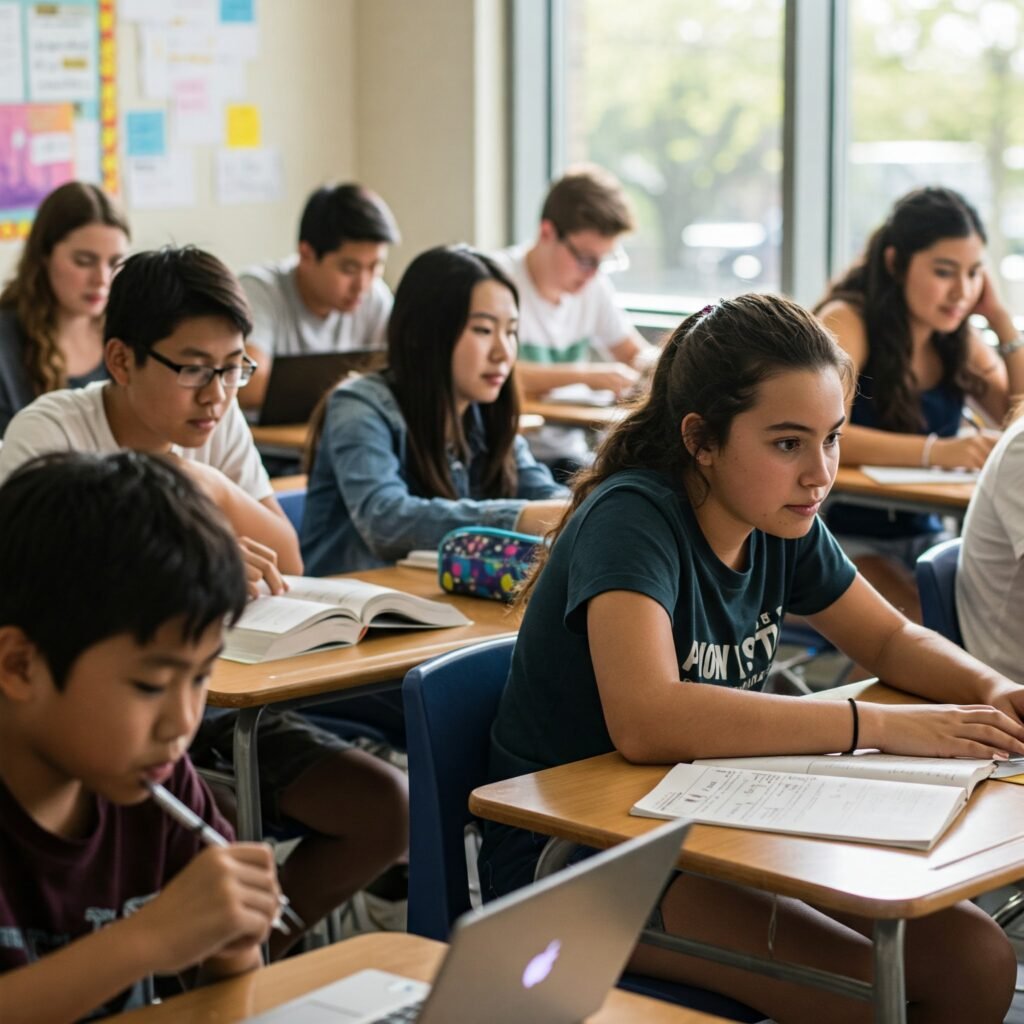Discussion fills legislative halls and school staff rooms nationwide. Why? A new education bill. This proposed law isn’t just minor policy; it could significantly change how we educate our children. Consequently, it has quickly started a national conversation affecting every community.
Education policy is often complex. However, this particular new education bill has managed to unite – and divide – people from all backgrounds. Parents, teachers, administrators, students, and politicians are all talking. Therefore, it’s vital to understand why this bill draws such intense scrutiny. Its effects could shape learning for future generations.
Let’s explore the core parts of this new education bill. We’ll then explain why a widespread national debate is happening.
Understanding the New Education Bill: Key Proposals
Large education bills can be complex. However, this specific new education bill includes key components driving current discussions. (Note: This article discusses a hypothetical bill. We cover common areas of education reform).
The bill likely addresses several major areas. Here are some examples:
- Funding Allocation: The bill proposes significant changes. It affects how federal (and possibly state) funds go to school districts. This includes ideas for grant programs and changes to Title I funding. Furthermore, it may support or cut specific programs like special education or arts.
- Curriculum Standards: The bill introduces new national or revised state standards for main subjects. Consequently, this could change teaching methods and classroom materials.
- Teacher Evaluation & Development: The bill proposes changes to how we assess, certify, and support teachers. New performance metrics or training requirements might be included as a result.
- School Choice & Alternatives: Provisions relate to charter schools, voucher programs, or other schooling options. Similarly, the bill might affect how these alternatives operate.
- Student Testing & Accountability: The bill suggests changes to standardized testing rules. Additionally, it affects how we hold schools accountable for student results.
These areas seem simple but contain details that could lead to very different outcomes. Indeed, they have become key points in the national debate around the new education bill.

Key Areas of National Debate Sparked by the Bill
The controversy isn’t just about the bill itself. People debate its likely impact. Consequently, this has led to vigorous discussions across dinner tables, news channels, and town halls. Here are the most debated aspects:
Funding Implications of the New Education Bill
Funding causes intense discussion. The new education bill proposes handling funds differently. Education funding combines federal, state, and local money. Therefore, any big changes here affect the whole system.
Proponents’ View on Funding
Proponents argue the proposed funding model aims for fairness and efficiency. It directs money where it’s most needed, like in underserved communities. Alternatively, it rewards specific improvements, such as in STEM or early reading programs. They may use data to show current models don’t work well or are outdated.
Critics’ Concerns about Funding
Critics worry changes could mean significant budget cuts for schools already struggling. This could hit low-income city and country areas hardest. Furthermore, it might also reduce essential programs like art or counseling. Concerns exist about requirements not getting full funding, putting stress on local districts.
Why Funding Matters in the New Education Bill
School funding directly affects many things. For example, it impacts class sizes, teacher pay, and available resources like books and technology. It also affects building maintenance. Ultimately, these are basic parts of a school’s ability to educate effectively.
Curriculum Changes Proposed in the Bill
What schools teach also causes major debate about the new education bill. Proposed changes to curriculum standards often spark passionate discussion among educators, parents, and communities.
Proponents’ View on Curriculum
Proponents suggest new standards are needed. They say this better prepares students for college, careers, and life today. The focus is on key skills like critical thinking and digital knowledge. They may emphasize making learning goals similar across states for consistency.
Critics’ Concerns about Curriculum
Critics voice concerns that new standards could be too strict. This might limit how teachers use their creativity or respond to local student needs. Debates often happen about specific subjects like history or science. People question if the proposed content is balanced or respects community values. Moreover, teachers also worry about the cost and time to learn new ways and get new materials.
Why Curriculum Changes Spark Debate
Curriculum decides what skills and knowledge schools focus on. Changes can affect everything from teaching methods to the school’s overall learning approach. Consequently, stakeholders pay close attention to this section of the new Education Bill.
Continuing the Debate: Other Key Issues in the New Education Bill
Beyond funding and curriculum, the new education bill raises several other significant questions that fuel national discussion. Understanding these points is essential to grasping the full scope of the debate.

Teacher Impact Under the New Education Bill
Teachers are key to education reform. Therefore, the new education bill includes rules about teacher reviews, training, and work life. People examine these rules closely.
Proponents’ View on Teachers
Proponents claim new review systems will find and reward great teachers. They say new professional development programs will improve instructional quality everywhere. They may argue for accountability measures that ensure teacher competence and effectiveness.
Critics’ Concerns about Teachers
Critics fear new ways of measuring teachers might be unfair. They worry these systems rely too much on standardized test scores. Critics argue test scores don’t show a teacher’s full effect on diverse students or their help to the school community. Moreover, more paperwork, pressure to teach only for tests, and linking reviews to keeping jobs could make teachers stressed. As a result, this might cause good teachers to leave the profession.
The Critical Role of Teachers in Bill Discussions
Teachers are the most important factor in student learning inside schools. Policies affecting their workload, how they are judged, their freedom in the classroom, and their pay directly impact how well they teach. These policies also affect if schools can find and keep talented people who want to teach. Thus, their perspective is vital in the new education bill debate.
Equity and Access under the New Education Bill
Public education should offer fair chances for all students. This is true no matter their background. Rules in the new education bill about fairness and access cause intense debate.
Proponents’ View on Equity and Access
Proponents assert the bill aims to close gaps in student success and opportunity. They say it gives money or help to students who face disadvantages. This includes students from poor families, students of color, students with disabilities, and students learning English. They may point to more school choice options. These options could help students leave schools that are not doing well.
Critics’ Concerns about Equity and Access
Critics argue some parts, particularly certain school choice mechanisms like voucher programs, might take needed money from public schools. Consequently, this could create an unfair system where some students get better chances. Critics question if all students, especially those with complex needs, can really access all proposed alternatives. They also ask if the bill truly fixes unfair systems already in place.
Ensuring Fairness: A Key Bill Concern
Decisions around equity in the new education bill decide if the policy helps achieve equal chances for every child. This debate involves civil rights, social fairness, and the basic goal of public schools. Therefore, it remains a central and often passionate point of contention.
Parental Rights and the New Education Bill
Parents playing a role in their child’s learning is widely valued. But exactly what “parental rights” mean in education policy causes much debate. Indeed, this is a big part of talks about the new education bill.
Proponents’ View on Parental Rights
Proponents highlight the bill might clearly state that parents have more say and choice in their child’s schooling decisions, what they learn, and getting information. They say this gives power to families and makes things clear and transparent.
Critics’ Concerns about Parental Rights
Critics express concern some wording about parental rights could potentially clash with what school experts think is best. It might limit access to some learning materials or topics if some parents find them controversial. Moreover, it could also create requirements that schools find hard to follow for everyone. Balancing the rights of one parent with the school’s duty to all students is key here.
Balancing Rights: A Delicate Act
This aspect of the debate centers on a delicate balance. It involves the rights and responsibilities of parents, the professional expertise of educators, and the state’s job to set standards and ensure good education for all students. Consequently, finding consensus on parental rights in the new education bill proves challenging.
[Image Placeholder 3: Diverse group of people (parents, educators, community members) in a lively discussion or town hall setting]




